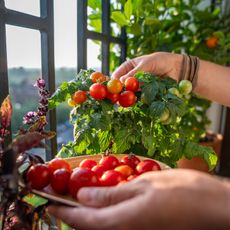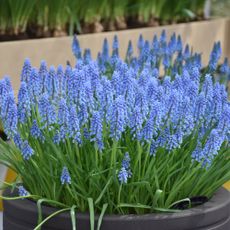Unwanted Garden Plants: 10 Most Hated Plants By Gardeners

Unwanted garden plants have you cursing and stomping about? As a gardener, it's a little hard to admit that there are plants you just can't stand. But don't feel bad about this. Come out and admit you abhor the dandelions that creep into your lawn each year or the potted miniature roses that you keep buying, yet never last more than a week or two.
Most "Unwanted" Garden Plants
Invasive species, weeds, and just plain difficult or disappointing plants are often hated by gardeners. Below are 10 of the most hated plants that many gardeners, myself included, go toe-to-toe with:
- Japanese honeysuckle. The mother of all invasive plants, the Japanese honeysuckle vine has covered swaths of the eastern U.S., smothering and outcompeting native plants of all types. This makes it one of the worst plants for the garden.
- Norway maple. On the list of pain-in-the butt trees, Norway maple ranks high. The only real reason to plant one is that it grows quickly. On the downside, branches and endless twigs fall down in the slightest breeze, along with samaras that germinate nearly everywhere, and knotty roots dot the lawn and can break up sidewalks and driveways.
- Ficus. The caveat here is that ficus, or fig, is a tree that is really only a pain when it is sold as a large houseplant. The problem is that it does not thrive in indoor conditions all that well and so this tall, pretty tree often just dies.
- . A pear tree seems like you can't lose when it has plenty of flowers and fruit. And yet this variety of pear is despised by anyone who plants it. All too often the growing of Bradford pear trees leads to disappointment. The flowers smell terrible, not sweet; seedlings sprout out of control; the tree makes a mess in storms; and the lifespan is short.
- Florist's azalea. Outside, an azalea is a lovely flowering shrub. But if you try to buy a potted azalea to grow indoors, you'll find that it the florist's variety lasts just days or a week if you're lucky.
- . This one may inspire some debate, but English ivy, for the most part, is an aggressive, non-native vine that climbs everything and can take over all corners of your garden if you don't keep up with it. It easily climbs brick and covers your home, even your windows.
- Japanese barberry. This non-native shrub is especially problematic in the Midwest where it has been listed as dangerously invasive. Starting out as a popular garden shrub, this barberry plant has now taken over in many natural areas. And, it just happens to host ticks and mice that ticks feed on, making the environment more dangerous for people.
- White mulberry. While the white mulberry tree produces edible fruit, it also produces a prodigious mess of both squashed berries and the droppings of all the birds that gorge on them. It's another one of the worst plants for the garden if you prefer neatness.
- Kudzu. Kudzu plant is known as "the vine that ate the south." This Asian invasive vine has swallowed fences, buildings, and even trees throughout southern states, making it not only unwanted but one of the most hated plants on our list.
- Dandelion. For a cheerful little yellow flower, the dandelion plant sure gets a bad rap. It's possibly the most despised weed of lawn growers everywhere. The roots run deep, tapping into the water and nutrients that help this weed thrive and also make them difficult to remove.
Gardening tips, videos, info and more delivered right to your inbox!
Sign up for the Gardening Know How newsletter today and receive a free copy of our e-book "How to Grow Delicious Tomatoes".

Mary Ellen Ellis has been gardening for over 20 years. With degrees in Chemistry and Biology, Mary Ellen's specialties are flowers, native plants, and herbs.
-
 Best Tomatoes For Containers: 10 Tastiest Varieties For Plentiful Produce In Compact Areas
Best Tomatoes For Containers: 10 Tastiest Varieties For Plentiful Produce In Compact AreasThese are the best tomatoes for containers that prove you don't need to have a large space or elaborate garden to grow delicious produce.
By Bonnie L. Grant
-
 Ultimate Potted Flowers For Spring: 8 Brilliant Blooming Options for Spring Containers
Ultimate Potted Flowers For Spring: 8 Brilliant Blooming Options for Spring ContainersCelebrate the most uplifting of seasons with the most dazzling container flowers imaginable. Here, we present some of the loveliest potted flowers for spring…
By Tonya Barnett